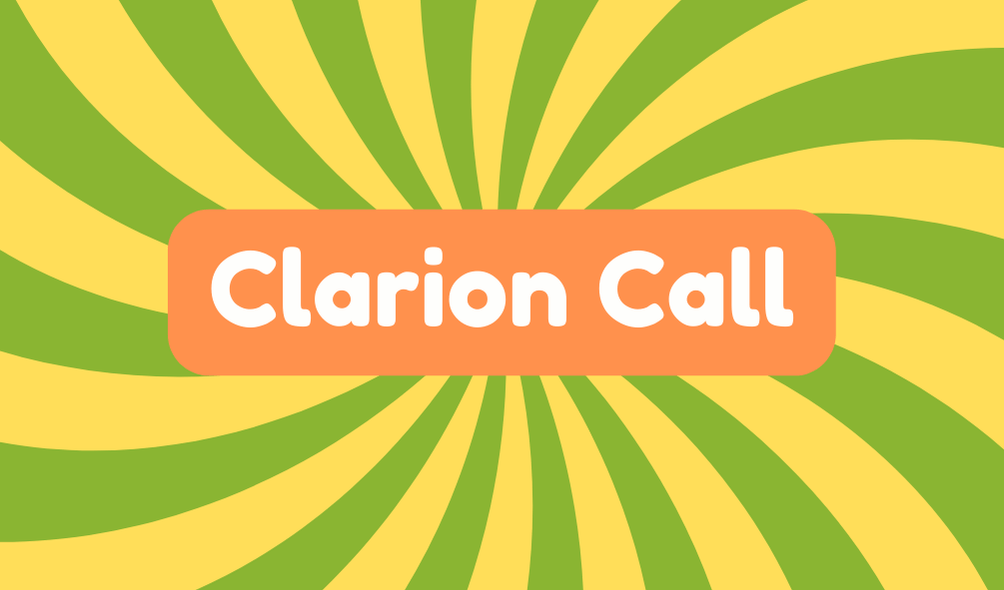A clarion call is a strong summons for action, rooted in the Latin word for trumpet, highlighting its historical role in communication. You might hear it in phrases like "clarion call for justice," which stresses the urgency of a particular cause. This term gained traction in the late 18th century and was even mentioned in Chaucer's *The Canterbury Tales*. It emphasizes the need for immediate response, often used in contemporary movements addressing climate change or social justice. Understanding its implications could inspire you to recognize the weight of such calls in today's society, uncovering more fascinating aspects ahead.
Synonyms
When you think of "clarion call," several synonyms might come to mind that capture its essence and urgency. These vivid expressions not only depict the call-to-action but also highlight the necessity for immediate engagement. It's crucial to recognize how these terms resonate within various contexts, providing urgent appeals for those willing to innovate.
- Rallying cry
- Resounding summons
- Clear invitation
- Loud entreaty
- Direct request
Understanding these alternatives adds depth to your communication toolbox. While each synonym shares similarities, they also bear nuances that can impact your message's effectiveness. Consider how these words shape action and provoke thought, as a genuine clarion call should inspire someone to respond decisively and meaningfully.
Example of Sentences
Using phrases like "rallying cry" or "loud entreaty" can help convey urgency, but nothing quite captures the essence of a "clarion call" like specific examples. Here are a few to reflect upon:
- Citizens heard the clarion call and prepared to defend the city.
- The CEO's clarion call for innovation ignited the team's creativity.
- A clarion call emerged during the town hall meeting, demanding urgent response to climate change.
- Activists raised a clarion call for justice, encouraging immediate action in the community.
- The teacher's clarion call for smarter learning methods resonated with both students and parents.
These sentences illustrate how a "clarion call" serves as a powerful motivator, compelling people to respond decisively and engage with pressing issues directly.
Origin
Historically, the term "clarion" has consistently invoked imagery of clarity and loudness, deriving from the Latin word *clario*, which means trumpet. This connection indicates a strong vocal presence, essential for communication. Latin influences are evident, as *clarus* conveys brightness and clarity, reflecting how messages were delivered in a straightforward manner. During the Medieval era, clarions were smaller and produced a higher pitch than traditional trumpets, emphasizing their role in calling attention. Geoffrey Chaucer even referenced clarions in *The Canterbury Tales*, further rooting it in literary significance. While the term gained traction in lyrical poetry around 1787, its evolution reflects societal changes. Understanding this origin helps you appreciate its current use as a rallying cry for clear, urgent communication.
Collocations
Understanding the origins of the term "clarion" sets the stage for exploring its collocations, which reveal how the phrase is commonly paired with other words to convey specific meanings. Recognizing the clarion call significance can enhance your understanding of its usage, particularly in the clarion role in communication. Here are some notable collocations you might encounter:
- Clarion call for action
- Clarion call to unity
- Clarion call for change
- Heed the clarion call
- Respond to the clarion call
Each of these phrases emphasizes urgency and a demand for collective response. It's essential, though, to be critical of how often these terms are used. Are they truly mobilizing action, or are they merely buzzwords?
How to Use in Everyday Language
A clarion call can powerfully enhance your everyday conversations when you want to convey urgency or the need for action. In discussions about social issues or innovative projects, using this phrase brings cultural significance to your message. For example, you might say, "We can't ignore the clarion call for environmental change." This highlights the importance and immediacy of the situation, pushing others to engage. However, be mindful that overusing such expressions can dilute their impact; you don't want to sound cliché. Instead, choose your moments carefully. By integrating a clarion call into your everyday applications, you create a stronger, more compelling narrative that encourages others to think critically and act decisively. Avoid empty rhetoric—action matters!
Why Is It Still Relevant Today?
The clarion call remains highly relevant today because it captures the urgency needed to address pressing societal issues. In a world where quick responses are essential, this term embodies the push for action against climate change, social justice, and public health challenges. Its cultural significance endures, reminding us that history isn't just a series of events but a continuous dialogue. Modern applications of the clarion call can be found in movements endeavoring for change, making it an essential part of our communication. Yet, we must question whether these calls are being adequately heeded. When we hear a clarion call, we must think critically about our responsibility to respond—not merely to shout back, but to act.







